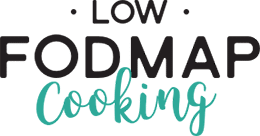Low FODMAP meal planning and meal prep
Following a low FODMAP diet or dietary needs can be challenging at times and often requires a bit of thinking ahead. One great skill that can really help you stay on track is through meal planning and meal prepping. Meal planning and prepping can help you minimise your risk of experiencing an IBS flare up whilst ensuring that you meet your nutritional requirements. Here are some tips to get you started with meal prepping for the low FODMAP diet.
Utilise low FODMAP tools
There are so many wonderful tools at your disposal to help you with your low FODMAP journey such as:
Monash FODMAP app - this app includes a food guide with hundreds of tested products and foods to show you whether they are low, moderate or high in FODMAPs.
Ready to go recipes - utilising a range of websites and recipe books that specialise in low FODMAP meals mean you can plan your meals ahead of time and avoid high FODMAP foods. We’ve got you covered from everything from breakfast to snacks with recipe ebooks.
Pantry staples list - having a well stocked pantry with low FODMAP products means you can minimise the stress when it comes to cooking low FODMAP recipes.
Meal plan and prep to suit your style
There are different ways to meal plan and prep and not one way is going to be perfect every week. Different ways to plan and prep include:
Creating a set menu for the week with some or all meals included
Making a list of different meals that you can pick and choose from each day
Setting aside dedicated time to make full meals eg) Cooking for a few hours each Sunday
Keeping a flexible style of meal prep such as cooking different vegetables, proteins and grains to mix and match from throughout the week
Consider planning and prepping for breakfast and snacks, not just lunches and dinners. Having ready to go snacks can help ensure you keep your energy up throughout the day and avoid high FODMAP or foods that may trigger IBS symptoms.
Know your triggers
If you’ve passed the elimination stage of the low FODMAP diet and have identified your individual symptom triggers, keep note of the ingredients that you need to limit or potentially avoid.
If you’re still working through the elimination stage, ensure you are using tools such as the Monash FODMAP app or working with a nutrition professional who can assist you in your low FODMAP journey.
Be aware of nutritional needs
It’s extremely important to keep on top of your nutritional needs to ensure you are meeting your energy requirements and eating a well balanced diet. The Eat for Health website is a great resource that you can use to check you’re consuming an adequate serving of important micro and macronutrients.
There is certainly no right or wrong way to meal planning and meal preparation. When following a low FODMAP diet meal planning and meal preparation can help to ensure you stay on track and avoid a high FODMAP symptom flare up.
